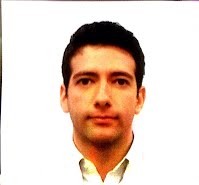Ethan Bornstein

Ethan (Eitan) Bornstein grew up in the Washington, DC, area. From there, he moved to the midwest to attend the University of Michigan in Ann Arbor where he studied History and pre-med. During his undergraduate degree, he had the opportunity to participate in HIV and TB research both at the National Institutes of Health (NIH) and at the Doris Duke Medical Research Institute (DDMRI) in Durban, South Africa. After graduation, he spent a year working in a pediatric endocrinology lab at the NIH, and later traveled in Central Europe, Israel, Haiti and Guatemala before starting medical school at Emory University School of Medicine in Atlanta.
At the end of his first year of medical school, Bornstein participated in a medical student clinical trip to Northern Thailand. Now, during his fourth year of medical school, he has the opportunity to travel abroad again for 3.5 months to join a clinical research study entitled, “Utilizing a Point of Care Test for Cryptococcal Screening Among Hospitalized HIV-infected Adults in Addis Ababa, Ethiopia." Bornstein's personal interests include playing soccer, reading literature, discussing and sharing music with friends and spending time outdoors.

Project: "Utilizing a Point of Care Test for Cryptococcal Screening Among Hospitalized HIV-infected Adults in Addis Ababa, Ethiopia"
June 1 - August 31
Addis Ababa, Ethiopia
What does the Kean Fellowship mean to you?
When I received the Kean Fellowship I felt a sense of honor and pride that my project would have broader recognition and support. When I received the notification email, I had recently arrived in Ethiopia and was looking forward to starting my project. After the exciting initial introductions to my research team members, I felt further energized for our project to begin. I was proud to share the news of the fellowship with my team members.
The support from the Kean Fellowship allows me to conduct my proposed project on cryptococcal disease among hospitalized HIV-infected patients. It grants me an opportunity to experience life in Addis Ababa, Ethiopia, and interact with patients and hospital staff including nurses, lab technicians, students, residents and faculty members. I hope that my interactions and cooperation with these individuals will further nurture my passion for clinical research particularly concerning tropical and infectious disease.
What do you anticipate learning?
I anticipate learning more about infectious disease and tropical medicine, particularly involving HIV-infected patients who may have limited understanding of their disease or access to care in Addis Ababa, Ethiopia. My project will focus on the prevalence rates of cryptococcal antigenemia and disease among hospitalized HIV-infected individuals. It has been recently estimated that cryptococcal disease is a leading cause of death among HIV patients in resource limited settings. I am interested in learning more about how early, rapid and inexpensive screening methods for cryptococcal disease may address this health concern and improve patient management. This project will take place in Black Lion Hospital, one of the largest public hospitals in Ethiopia.
The Kean Fellowship will help me develop my interests in international collaboration and research. A large part of my project will be learning how to construct sustainable research projects in resource limited settings and encouraging local researchers to develop and expand their own research efforts.
What interests you about tropical medicine and what problems are you interested in solving?
Tropical medicine is a field that encompasses public health, infectious disease, clinical and basic science research. I am intrigued by this overlap and feel that the investigation of health concerns with this viewpoint will improve patient management and care both at home and abroad.
In my proposed project, I will be utilizing a point-of-care screening test for cryptococcal antigen. As cryptococcal disease among HIV-infected individuals is associated with a high mortality rate; how can better screening methods impact patient care and outcomes? I am eager to see how the use of a newer, more affordable and relatively easier-to-perform, rapid test will function in a resource limited setting. I feel that a successful effort can and will be extended to future tropical medicine projects.